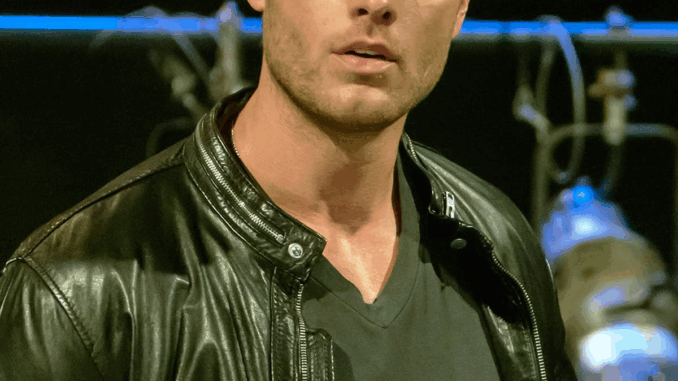
In a revelation that has left fans stunned, Justin Hartley has confessed that he once considered walking away from acting altogether after the intense pressure of starring in NBC’s critically acclaimed drama This Is Us. Known for his role as Kevin Pearson, Hartley became a household name during the show’s six-season run, but behind the polished performance was a man grappling with overwhelming expectations and the crushing weight of sudden fame.
“People don’t realize how heavy it got,” Hartley admitted in a recent candid conversation. “There were days when I thought, maybe this isn’t for me. Maybe I should just step back.” For years, This Is Us dominated primetime television, pulling in millions of viewers and garnering awards buzz with its emotionally charged storytelling. But Hartley revealed that the success came at a cost, leaving him exhausted and questioning his future in Hollywood.
According to insiders, the pressure came from multiple angles: fan expectations, critical scrutiny, and the personal toll of embodying a character who carried such emotional weight. Kevin Pearson’s journey through addiction, relationships, and self-discovery mirrored struggles that many viewers found deeply relatable — but for Hartley, the intensity of those storylines blurred into his personal life. “It’s like carrying that pain day after day,” he explained. “At some point, I started asking myself if I could keep doing this.”
Friends close to the actor confirmed that he quietly considered stepping back from the industry, exploring the possibility of taking an extended break or even shifting careers. “He was burned out,” one confidant revealed. “The pressure of being part of such a massive cultural phenomenon wore him down. He was proud of the work, but it was draining in ways people didn’t see.”
Then came Tracker. Initially, Hartley was hesitant to take on another leading role. But after reading the script and speaking with producers, he realized the project offered not just a new character, but a new chance to redefine his career. “It was like a light switched on,” Hartley recalled. “For the first time in a long time, I felt excited. I thought, maybe this is the role that will remind me why I love acting.”
And he was right. Tracker, with its high-stakes plots and complex character dynamics, gave Hartley the opportunity to showcase a different side of his talent. Unlike Kevin Pearson’s deeply introspective arc, his role in Tracker allowed him to embrace action, suspense, and moral ambiguity. The shift reinvigorated him, turning what could have been an exit from Hollywood into a surprising and triumphant comeback.

NBC executives reportedly saw Tracker as a high-risk, high-reward gamble, but Hartley’s star power was instrumental in launching the series. Early buzz suggests the show has struck a chord with audiences, with many praising Hartley’s performance as both commanding and refreshingly different. “This feels like Justin 2.0,” one critic noted. “He’s stepped out of Kevin’s shadow and proven he can lead a series on his own terms.”
For Hartley, the success of Tracker is more than professional validation — it’s personal redemption. “I was close to walking away,” he confessed. “But this show reminded me of why I started acting in the first place. It’s about telling stories that connect with people, that challenge you, and that make you fall in love with the craft again.”
Fans have responded with overwhelming support, flooding social media with messages celebrating his resilience and comeback. Many expressed relief that he chose to stay in the industry, pointing out how his new role demonstrates his range and depth as an actor. “We almost lost him,” one fan tweeted. “Thank God for Tracker — it gave him back to us.”
As the series continues to gain traction, Hartley’s journey stands as a powerful reminder of the human side of Hollywood success. Fame, acclaim, and awards don’t always shield actors from doubt and burnout, but with the right role and the right timing, reinvention is always possible. For Justin Hartley, Tracker isn’t just another show — it’s proof that sometimes the biggest comebacks come when you’re closest to giving up.